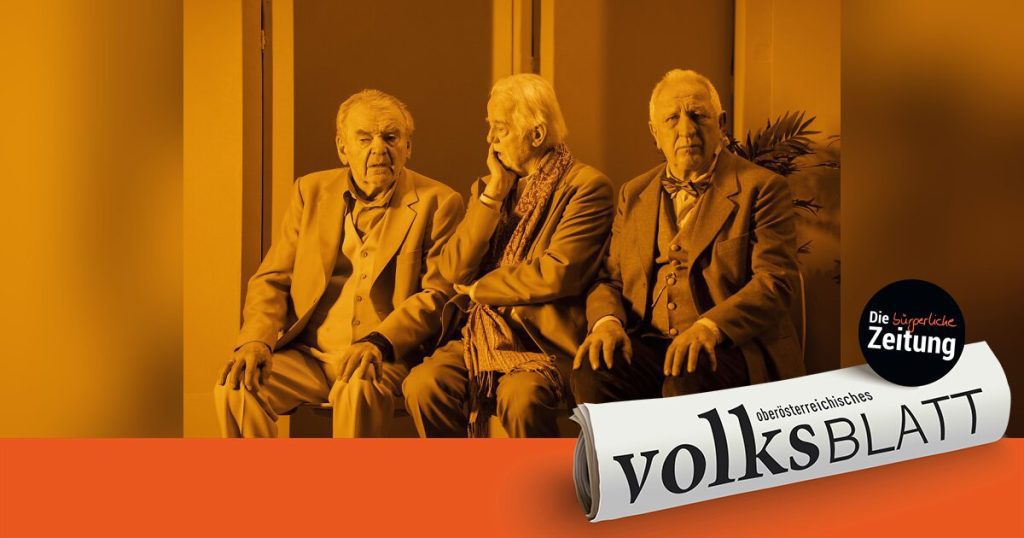
How do you bring a script to the stage in which memories are exchanged in dialogue, rants about early theater and film experiences, and philosophize about “grandfatherhood in general” without providing concrete clues to the people, setting, or plot? Rieke Süsskow opted for an old-fashioned, industrial-filled corporate setting at the Academy Theater and made Handke’s “dialogue” the endgame and farewell.
Yesterday’s premiere was eagerly awaited, yet it left no one stumped for 100 minutes. The 32-year-old director, who has just received a Nestroy Prize for her theatrical debut of “Oxytocin Baby”, interpreted the text for the 80-year-old poet on the one hand through a question of generations and on the other hand, she divided it into more than two characters.
Handke dedicated the text to the deceased actors Otto Sander (1941-2013) and Bruno Ganz (1941-2019), with whom he was close. In the Academic Theatre, Hans-Dieter Niebel, Martin Schwab and Branko Samarovsky were prisoners in a strange nursing home with an extra and perished with several rounds of Journey to Jerusalem. Schwab received the bulk of the script jointly with babysitter Bernard Knoll, but Elisa Bloss and Marisie Regner also received some scripts as protagonists for a fairly extensive cast of nurses.
In addition to the five actors, the program’s booklet lists 20 other participants (including a young boy who wanders around the scene with a flashlight). This was not necessary, because even the alleged dialogue is in reality nothing more than a monologue and not a real confrontation of different situations. Lyrically, the game of granddaughters versus grandparents and nurses versus patients ends scoreless, as there is no ball in play (except for a red ping-pong ball, which the gag bounces twice before both the ball player and the ball).
Of course there is a lot to look at. Stage designer Miriam Stangl places an accordion wall behind a narrow stage strip, well away from the audience. Disturbing, toxic, multicolored light lends scenes an artificiality that is amplified by microphones. Multifunctional furniture serves as storage and magazines for mystery tasks, where serious jars seem to play an important role. The bizarre brewing behind the prisoners’ backs sometimes oddly contrasts with the thoughtful, moody, but touchingly honest text. Pure intention, one might think. But what is the purpose of this?
Towards the end of the Schwab-Bach, he served his fellow prisoners. In a scene reminiscent of The Last Supper as well as of the Jedermann’s dinner party, he first lays down, but then picks himself up again: “We have no right to rest.” The keels were arranged before going out to the stern. Party noises can be heard from there. Maybe more is going on behind the scenes than on stage. It’s supposed to happen more often.
Peter Handke: “Dialogue,” Director: Ricky Susko, Stage: Miriam Stangl, Costumes: Marilyn Duquesne. With Martin Schwab, Branko Samarovsky, Elisa Plos, Marici Regner, Hans-Dieter Nebel. World premiere on the Academic Stage, and further performances on December 10, 17, and 25. burgtheater.at

“Travel aficionado. Certified problem solver. Pop culture guru. Typical writer. Entrepreneur. Coffee trailblazer.”








More Stories
Magic Abba – Europe's #1 Music Show Live with the Band
Joseph Hader faces 'turbulence surrounding a peaceful person'
Live streaming platform Kino VOD Club brings focus to Graz